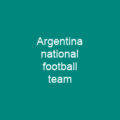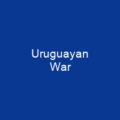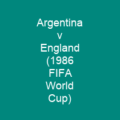Imagine a vast land where history whispers through the winds, culture dances under the moonlight, and nature paints its most breathtaking landscapes—this is Argentina.
The Land
Stretching across 2,780,085 km2, Argentina shares borders with Chile to the west, Bolivia and Paraguay to the north, Brazil to the northeast, Uruguay and the South Atlantic Ocean to the east, and the Drake Passage to the south. Its diverse geography includes the Andes mountains, vast plains, and a coastline that stretches over 5,100 km.
Geography
The highest point in Argentina is Aconcagua at 6,959 m above sea level, while the lowest point is Laguna del Carbón at -105 m. Major rivers like the Paraná and Uruguay form part of its rich waterways, contributing to a vibrant ecosystem that supports an array of flora and fauna.
The People
Argentina’s population stands at around 46 million, with a median age of 31.9 years. The country is known for its multicultural society, with European ancestry being the majority (79%). However, there are also significant Asian populations and Arab Argentines, making Argentina a melting pot of cultures.
Culture
Argentine culture is a blend of Indigenous, Spanish, Italian, German, French, and other influences. The country boasts a rich literary tradition with authors like Jorge Luis Borges and Leopoldo Lugones, while its music scene features the iconic tango and vibrant rock bands.
The Economy
Argentina’s economy is the third-largest in Latin America and the second-largest in South America. It benefits from rich natural resources, a literate population, and an export-oriented agricultural sector. Key industries include manufacturing, mining, and energy production.
Economic Challenges
Despite its potential, Argentina faces challenges such as high inflation rates (102.5% in 2023) and poverty levels (57.4% in January 2024). The government has implemented measures to address these issues but continues to grapple with economic instability.
The Future
Argentina’s future is shaped by its rich history, diverse culture, and dynamic economy. As it navigates through political and economic challenges, the country remains committed to innovation, cultural preservation, and international cooperation.
In conclusion, Argentina is a land of contrasts—where ancient traditions meet modern progress, where nature’s beauty inspires creativity, and where resilience defines its people. As we look towards the future, one thing is certain: Argentina will continue to captivate the world with its unique blend of history, culture, and natural wonders.

You want to know more about Argentina?
This page is based on the article Argentina published in Wikipedia (retrieved on February 20, 2025) and was automatically summarized using artificial intelligence.







